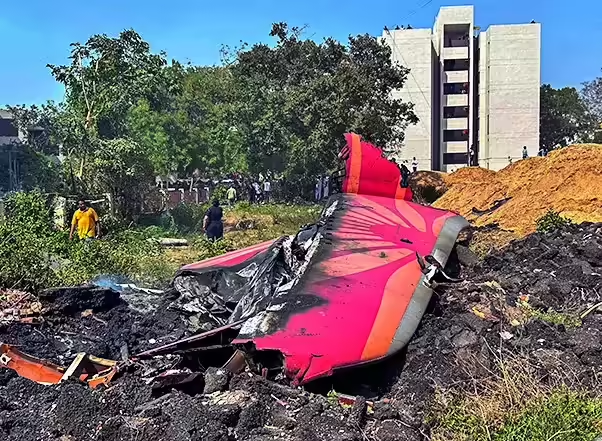Recent Developments in Air India’s Operations
The aviation ministry has recently called on Air India to make significant adjustments to its management structure, aiming to ensure that decision-making processes are clear and effective. This comes in light of rising safety concerns and the need for a more accountable work environment within the organization.
Key Messages from the Ministry
Officials from the Union aviation ministry have conveyed two primary messages to Air India’s management, particularly to the chairman of Tata Sons and Air India, N Chandrasekaran. The first emphasizes the need to put an end to a “backseat driving” culture within departments crucial to safety, such as safety, training, maintenance, and operations control. The second stresses that individuals in key positions must possess full decision-making authority.
Importance of Accountability
Creating clear accountability in these departments is vital to ensuring proper oversight and ultimately enhancing safety measures. Overlaps in authority can lead to confusion and inaction, especially in critical situations that demand prompt responses. Stakeholders, including ministers and top airline officials, have recognized this need for clarity to enhance operational safety across all levels of the airline.
Discussions Following Recent Incidents
In the wake of the crash of Air India Flight AI 171 and other minor incidents, high-level meetings have been convened to address safety and procedural weaknesses within the airline. Recent discussions initiated by the airline’s CEO Campbell Wilson have underscored the urgency of reforming operational practices.
- Crash Investigations: Ongoing investigations focusing on the AI 171 crash have prompted ongoing dialogues with regulatory agencies.
- Regulatory Meetings: Airline executives have been repeatedly summoned to regulatory agencies to account for lapses in operational protocols.
Concerns of Regulatory Officials
Regulatory officials have expressed concerns regarding the existing structure. Some voice frustration that accountability often lies with lower-level positions, while those actually making decisions fall outside the scrutiny of regulators. This disconnect leaves those officially responsible feeling like “scapegoats” in critical situations.
Changing the Work Environment
In addition to reinforcing managerial accountability, there have been criticisms regarding the airline’s practice of retaining displays from past aircraft crashes at their Gurgaon facility. While these displays might have been intended as reminders for safety, many employees have voiced their objections. They find these remnants promote a sense of negativity that is counterproductive to workplace morale.
Seeking a Positive Culture
Government officials emphasize that with stakeholders like Tata Sons and Singapore Airlines involved, there’s a strong potential for Air India to transform into a premier airline. The ability to foster a positive culture is seen as essential to achieving this goal. Employees commented, “We need more positive energy,” indicating that the morale within the company can impact overall safety and performance.
The Role of Regulatory Support
Bedrock principles of governmental oversight serve as a bulwark against systemic failures in the aviation sector. In a highly regulated environment such as this, the government pledges to offer hands-on assistance to Air India during this transitional phase. The goal is to elevate not just Air India but also the wider sector’s safety and operational integrity.
Future Directions for Air India
The ongoing debates and reforms signify a crucial turning point for Air India, as many industry observers note the airline’s current leadership represents an opportunity for rebirth. With appropriate regulatory support, and a focused internal restructuring, Air India could signal a shift toward more dynamic and accountable aviation management.
Concluzii: Calea de urmat
Overall, while Air India navigates through its internal and operational challenges, the encouragement from regulatory bodies highlights a willingness to evolve. Enhanced transparency and proactive governance can lead to significant improvements in operational safety and company morale. This transformation may also have wider implications for the travel and transport sectors, as other companies recognize the need for assessing their decision-making structures.
As the landscape of travel continues to shift, booking services like GetTransfer.com offer a convenient means for travelers to navigate these changes, ensuring personalized transport options without hassle. By enhancing user experience with a straightforward booking platform that empowers choices, GetTransfer.com enables travelers to make the most informed decisions. With an array of car options and transparency in pricing, this service ensures a smooth transition from booking to ride. Therefore, it’s prudent for travelers planning their next journey to consider the reliability and convenience of GetTransfer.com.
Ready to make your travel plans more straightforward? Book your ride through GetTransfer.com to ensure a hassle-free experience!

 Air India îndemnată să consolideze procesul de luare a deciziilor în zonele critice pentru siguranță">
Air India îndemnată să consolideze procesul de luare a deciziilor în zonele critice pentru siguranță">
Observații